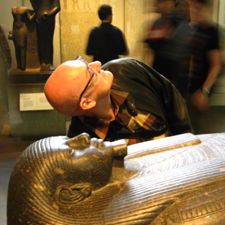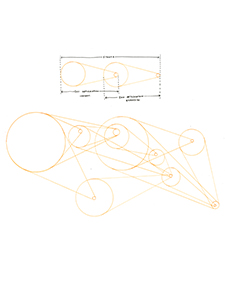cris cheek: is a transdisciplinary poet and performance writer, currently Director of Creative Writing at Miami University in south-west Ohio where he was the Altman Fellow in the Humanities Center 2011-12, co-initiating and co-organizing the Network Archaeology conference with Nicole Starosielski. He’s affiliated both to the Armstrong Interactive Media Studies and Comparative Media Studies programs at Miami. His most recent books are the church, the school, the beer (Critical Documents, 2007) and part : short life housing (The Gig, 2009).

Authors | Cris Cheek
Articles on Amodern by Cris Cheek
AMODERN 2: NETWORK ARCHAEOLOGY
Networks have structured our social – and media – development long before the emergence of the “network society.” From the letter-writing networks of the proto-Italian aristocracy to the electrical networks that facilitated industrialization; from the spread of woodcuts, pamphlets, and ballads that supported the Protestant Reformation to the twentieth century emergence of broadcast radio and television networks, media have always been situated in the matrices of networks of circulation and distribution, facilitating historically specific modes of connection. These histories often remain disconnected from research on digital networks, the latest to re-shape our socio-technical environment into a mesh of interconnecting nodes. An archaeological approach, one that routes between contemporary and historical networks, Alan Liu argues, has the potential to regenerate a sense of history that would temper the presentism of digital culture, all too often experienced as instantaneous and simultaneous.
This special issue of Amodern features original research, initially presented in 2012 at the “Network Archaeology” conference at Miami University of Ohio, on the histories of networks, the discrete connections that they articulate, and the circulatory forms of data, information, and socio-cultural resources that they enable. Drawing from the field of media archaeology, we conceptualize network archaeology as a call to investigate networks past and present – using current networks to catalyze new directions for historical inquiry and drawing upon historical cases to inform our understanding of today’s networked culture. In this introduction, we elaborate how network archaeology opens up promising areas for critical investigation, new objects of study, and prospective sites for collaboration within the productively discordant approach of media archaeology.




